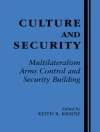While American national security policy has grown more interventionist since the Cold War, Washington has also hoped to shape the world on the cheap. Misled by the stunning success against Iraq in 1991, administrations of both parties have pursued ambitious aims with limited force, committing the country’s military frequently yet often hesitantly, with inconsistent justification. These ventures have produced strategic confusion, unplanned entanglements, and indecisive results. This collection of essays by Richard K. Betts, a leading international politics scholar, investigates the use of American force since the end of the Cold War, suggesting guidelines for making it more selective and successful.
Betts brings his extensive knowledge of twentieth century American diplomatic and military history to bear on the full range of theory and practice in national security, surveying the Cold War roots of recent initiatives and arguing that U.S. policy has always been more unilateral than liberal theorists claim. He exposes mistakes made by humanitarian interventions and peace operations; reviews the issues raised by terrorism and the use of modern nuclear, biological, and cyber weapons; evaluates the case for preventive war, which almost always proves wrong; weighs the lessons learned from campaigns in Iraq, Afghanistan, and Vietnam; assesses the rise of China and the resurgence of Russia; quells concerns about civil-military relations; exposes anomalies within recent defense budgets; and confronts the practical barriers to effective strategy. Betts ultimately argues for greater caution and restraint, while encouraging more decisive action when force is required, and he recommends a more dispassionate assessment of national security interests, even in the face of global instability and unfamiliar threats.
表中的内容
Preface
Part I. The Post–Cold War Hiatus
1. Introduction: From Cold War to Hot Peace
2. Policy Milestones: Cold War Roots of Consensus
3. Confused Interventions: Puttering with Primacy
4. New Threats of Mass Destruction: Capabilities Down, Intentions Up
Part II. History Strikes Back
5. Terrorism: The Soft Underbelly of Primacy
6. Striking First: Well-Lost Opportunities
7. Big Small Wars: Iraq, Afghanistan, and Vietnam
8. The Main Events: The Rise of China and Resurgence of Russia
Part III. Decision and Implementation
9. Civil-Military Relations: A Special Problem?
10. Plans and Results: Is Strategy an Illusion?
11. A Disciplined Defense: Regaining Strategic Solvency
12. Conclusion: Selecting Security
Notes
Index
关于作者
Richard K. Betts is director of the Saltzman Institute of War and Peace Studies at Columbia University, adjunct senior fellow at the Council on Foreign Relations, and author of numerous books on military strategy, intelligence, and foreign policy, including
Enemies of Intelligence: Knowledge and Power in American National Security and
Soldiers, Statesmen, and Cold War Crises. He has taught at Harvard University and Johns Hopkins University, is a former analyst at the Brookings Institution, and has served on the National Commission on Terrorism, the staffs of the Senate Intelligence Committee and the National Security Council, and the advisory panels for the director of Central Intelligence and State and Defense departments.












